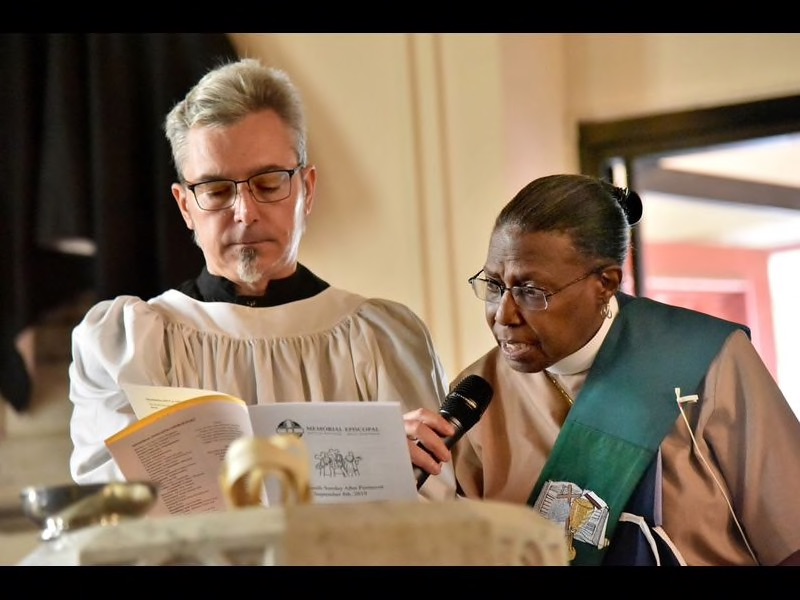The Baltimore Sun reported yesterday on a congregation in Baltimore which is actively working to understand its role in promoting slavery in the 19th century.
The Rev. Natalie Conway’s tenure as the new deacon of Memorial Episcopal Church in Baltimore’s Bolton Hill was by all accounts going well last year when she received news that sparked a personal crisis and sent shock waves through the congregation.
One of Conway’s siblings, who was conducting genealogical research on their family, told her that some of their forebears had been slaves on a local plantation — and the people and the land were owned by none other than the extended family of Memorial’s founding pastor, 19th-century cleric Charles Ridgely Howard.
If that weren’t disorienting enough, a current parishioner at Memorial — a man Conway had known for years and respected — was a descendant of the slaveholding clan.
The cascade of revelations at first overwhelmed the lifelong Episcopalian and native of Baltimore.
“My initial reaction was, ‘Why should I stay at a place that enslaved my ancestors?’” says Conway, 71, one of the few African American members of the 159-year-old parish. “I need to leave this church.”
… Last Sunday, Conway and [fellow parishioner Steve] Howard led the parish in a call-and-response “litany of reconciliation,” a prayer in which worshipers asked God to offer forgiveness “for the times we have failed to recognize racism in ourselves, in our church, in our society.”
Howard had always known of his ancestors’ slave owning past, but “kept it at an intellectual level” until Conway’s story emerged. He’s still grappling with its implications, but says addressing their joint history ― though it felt like “a punch in the gut” — was important.
“This has been a giant step forward,” he said.
Memorial’s rector, the Rev. Grey Maggiano, Tweeted that,
The work, as we see it as Memorial, is not a one time act, or singular symbolic or even dramatic financial gestures. It is to repair and restore relationships between the white church and black communities and in so doing work on creating a better future for all of God’s people.
This follows on the news last week that Virginia Seminary, part of whose campus was built by slaves from nearby Mount Vernon, was devoting $1.7 million to reparations, as well as the work around racism undertaken at the behest of the Presiding Bishop. However, as Rev. Maggiano notes in the Twitter thread referenced above, there is a remarkably low threshold for predominately white institutions to be in evolved in combating racism, and “we have to do better.”

